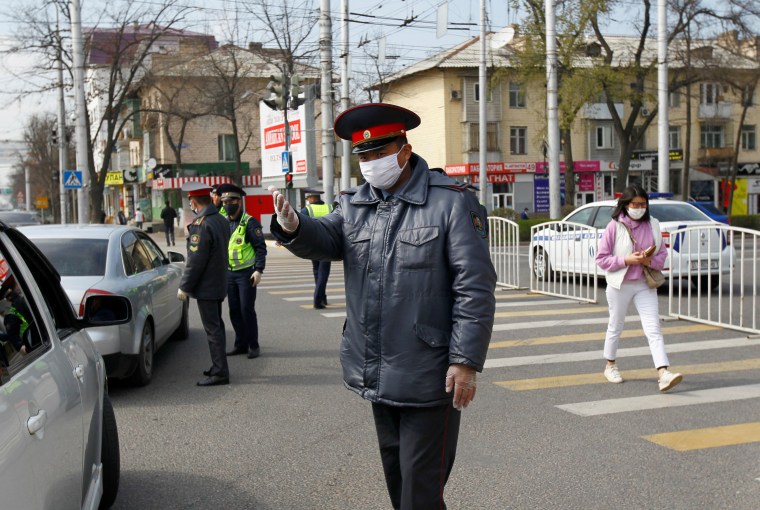New York, August 11, 2020 – Kyrgyzstan authorities should immediately release Uzbek journalist Bobomurod Abdullaev and allow him to work freely, the Committee to Protect Journalists said today.
On August 9, officers with the Kyrgyz State Committee for National Security detained Abdullaev, a freelance journalist and Uzbek national, in the Kyrgyz capital Bishkek, according to news reports and the journalist’s lawyer, Timur Karabaev, who spoke to CPJ in a phone interview.
Yesterday, Abdullaev appeared at the Pervomaisky district court in Bishkek, where a judge said his arrest was prompted by an extradition request from Uzbek authorities for allegedly “disseminating materials that target [the] existing constitutional order of Uzbekistan via social media,” and ordered him to be detained for 30 days pending consideration of the request, according to Karabaev.
The journalist is being held by the Kyrgyz State Committee for National Security in Bishkek, Karabaev said.
Karabaev told CPJ that he signed a nondisclosure agreement with the court that barred him from disclosing some details about Abdullaev’s case, but said that the journalist denied the allegations and would file an appeal.
“Kyrgyz authorities should deny Uzbekistan’s request to extradite Uzbek journalist Bobomurod Abdullaev and release him immediately,” said Gulnoza Said, CPJ’s Europe and Central Asia program coordinator, in New York. “Abdullaev has suffered at hands of Uzbek security services for his journalism in the past and could be subject to torture and ill-treatment again if forcibly returned to his home country. He should be able to work as a journalist freely, safely, and without fear of reprisal.”
Abdullaev moved to Kyrgyzstan in February to study at the American University of Central Asia in Bishkek for four months, and then remained in the country due to travel restrictions initiated amid the COVID-19 pandemic, Karabaev said.
Uzbek authorities accuse Abdullaev of writing critical posts about the government under the pseudonymous Telegram account “Qora Mergan,” which has about 3,000 followers, according to news reports and Abdullaev himself, who spoke in a video interview taken during his detention and uploaded by the U.S. Congress-funded broadcaster Radio Free Europe/Radio Liberty.
On July 25, Abdullaev published a video on his YouTube channel in which he denied having any connection to Qora Mergan, in response to allegations on social media that he was behind the account.
On August 11, Qora Mergan issued a statement denying that Abdullaev was behind the channel.
On August 10, the journalist’s defense team filed a request to the Bishkek office of the United Nations High Commissioner for Refugees to provide political refugee status to Abdullaev, Karabaev told CPJ.
In September 2017, Uzbek authorities charged Abdullaev with “attacking the constitutional order” for publishing articles critical of the state, according to CPJ research. He was released in May 2018, as CPJ documented at the time.
Prior to his 2017 arrest, Abdullaev contributed, under different pseudonyms, to independent regional news website Fergana, Radio Free Europe/Radio Liberty’s Uzbek service, and the London-based Institute for War and Peace Reporting, according to CPJ research.
CPJ was unable to find examples of his journalism since he was released from prison, other than a YouTube channel in which Abdullaev discusses the craft of journalism.
Following Abdullaev’s arrest, the Kyrgyz State Committee for National Security issued a press release stating that an Uzbek national was being held pending an extradition request from Uzbekistan. The date in the press release was listed as August 8, not August 9, and the journalist was identified only by the initials “A.B.,” but Abdullaev’s wife, Kuttikiz Balkhibaeva, confirmed to CPJ in a phone interview that the date of birth identified in the release is that of her husband’s.
CPJ emailed the Kyrgyz State Committee for National Security’s press center and the Uzbek prosecutor general’s office for comment but did not receive any responses.
